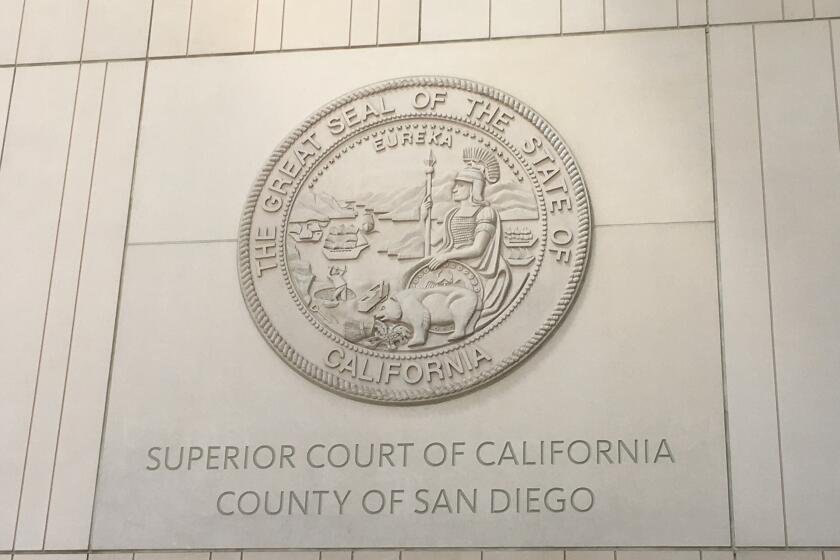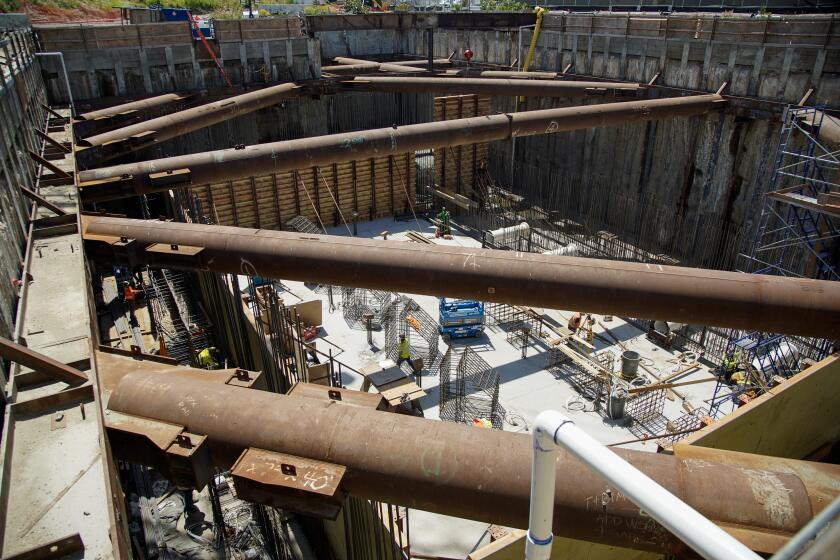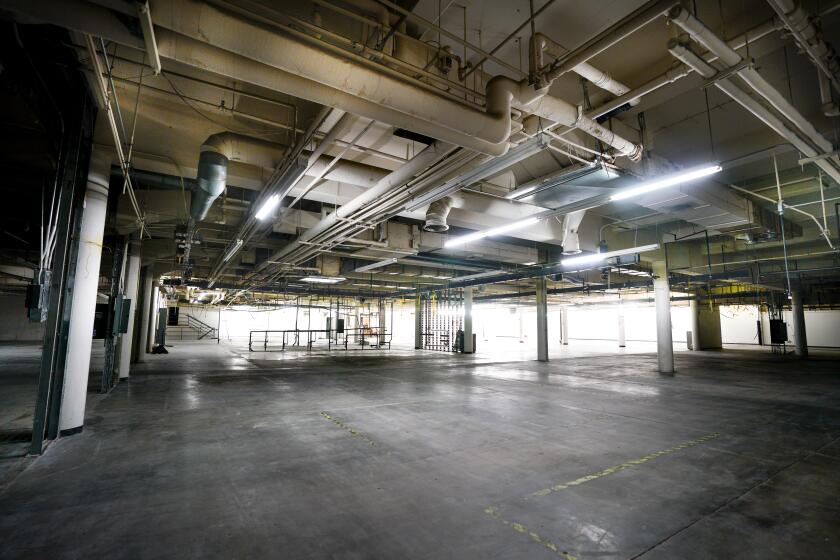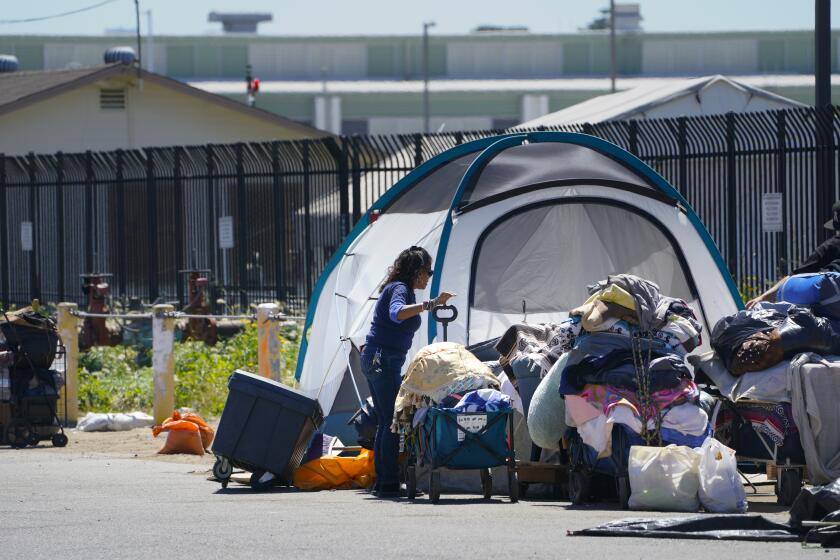Battle lines drawn over state water bond
California voters will decide this fall whether to approve a $7.5 billion water bond aimed at easing future droughts such as the one that’s gripped the state for three years in a row.
The measure is on the ballot as Proposition 1, the Water Quality, Supply and Infrastructure Improvement Act of 2014. If approved, it would fund new dams in Central and Northern California; clean up groundwater in Riverside and Los Angeles counties and restore much of the Sacramento-San Joaquin Delta, where the state gets a vast portion of its water supply.
Campaigns for and against the measure are in full swing, with supporters describing the bond as critical to ensuring California’s future water supply and opponents calling it a massive, misguided use of taxpayer money.
A recent poll showed that 58 percent of likely California voters favor the proposition. That high number is likely driven by the state’s ongoing drought, said several local political observers, one of whom added that opponents of the measure have “a very uphill battle.”
“The advantage has to go to the ‘Yes’ side because, for once, the Legislature and governor got it right in putting a good, sensible measure on the ballot,” said John Dadian, a San Diego-based political consultant.
Dadian said of opponents: “They’re not offering any alternatives, and everybody knows there’s a severe drought going on, especially in San Diego.”
Below is a look at what the bond would do statewide, what the dueling campaigns are saying about it and how it might affect San Diego County.
Bond proposals
Proposition 1 would set aside $4.2 billion to increase California’s water supply. Of that, $2.7 billion would go toward two new dams, likely at Sites Reservoir in Colusa County and another in the Central Valley. The California Water Commission would decide which projects to fund.
Also included is $725 million for water recycling and desalination projects, considered top priorities in arid San Diego County.
San Diego’s water and political leaders strongly support the bond because of its potential boost regional projects to become more water independent. Efforts such as the city of San Diego’s Pure Water project to recycle highly treated wastewater into drinking water could benefit from bond funding. The measure could also spur additional desalination plants like the one under construction in Carlsbad.
In addition to funding water supply, the bond would set aside $1.5 billion for watershed protection and restoration, and $1.4 billion for improvements to groundwater and surface water quality.
Too costly?
The “Vote NO on Prop 1” campaign says the measure is too focused on building dams, too favorable to agribusiness and costs too much.
Once completed, the two new dams will increase the state’s water supply by just one percent, according to the campaign.
Ratepayers who benefit from the added water storage, such as large farms in the Central Valley, should pay for the new dams, not taxpayers statewide, opponents argue.
They point out that, with interest, the bonds will cost more than $14.4 billion to repay, requiring taxpayer repayment of $360 million per year for 40 years.
“We’re giving up all this money for unsustainable agriculture. … Prop. 1 ain’t going to fix (anything),” Steve Hopcraft, spokesman for the campaign, said on Friday.
Marco Gonzalez, a prominent environmental attorney from the San Diego region, said Proposition 1 offers little for the local area.
“From a San Diegan’s perspective, Proposition 1 ignores the fact that we are at the end of the water pipeline, and among the most precarious regions susceptible to impacts of long term drought,” Gonzalez, head of the Coastal Environmental Rights Foundation, wrote in a recent U-T San Diego commentary. “With more than $5 billion allocated to projects on the San Joaquin River, Shasta Lake, and reservoirs in Contra Costa and Merced counties, San Diego and the rest of Southern California are being hung out to dry.”
Strong backing
Chris Crotty, a San Diego-based political consultant, said opponents of the water bond will score some points.
“I think (the opposition) will certainly draw voters away from the measure. But given the resources that Prop 1 has, I don’t think the environmental organizations will be able to match it,” Crotty said.
Some of those resources come from state firefighting organizations and the campaign for Gov. Jerry Brown.
Crotty said a TV commercial featuring a state fire official supporting both Proposition 1 and Proposition 2, which would create a rainy day fund, could resonate strongly in fire prone San Diego County.
“Props 1 and 2 protect the water and the fire services we need,” the official says, as the commercial shows images of firefighters battling wildfires.
On the water bond’s campaign website, paid for by a coalition including the governor, supporters described the measure as “a no-frills investment in critical projects that doesn’t break the bank.”
“California is in a severe, multi-year drought and has an aging water infrastructure,” the website says. “That is why Republicans and Democrats and leaders from all over California came together in nearly unanimous fashion to place this fiscally responsible measure on the ballot.”
chris.nichols@utsandiego.com | (916) 445-2934 | Twitter@christhejourno
Get Essential San Diego, weekday mornings
Get top headlines from the Union-Tribune in your inbox weekday mornings, including top news, local, sports, business, entertainment and opinion.
You may occasionally receive promotional content from the San Diego Union-Tribune.







